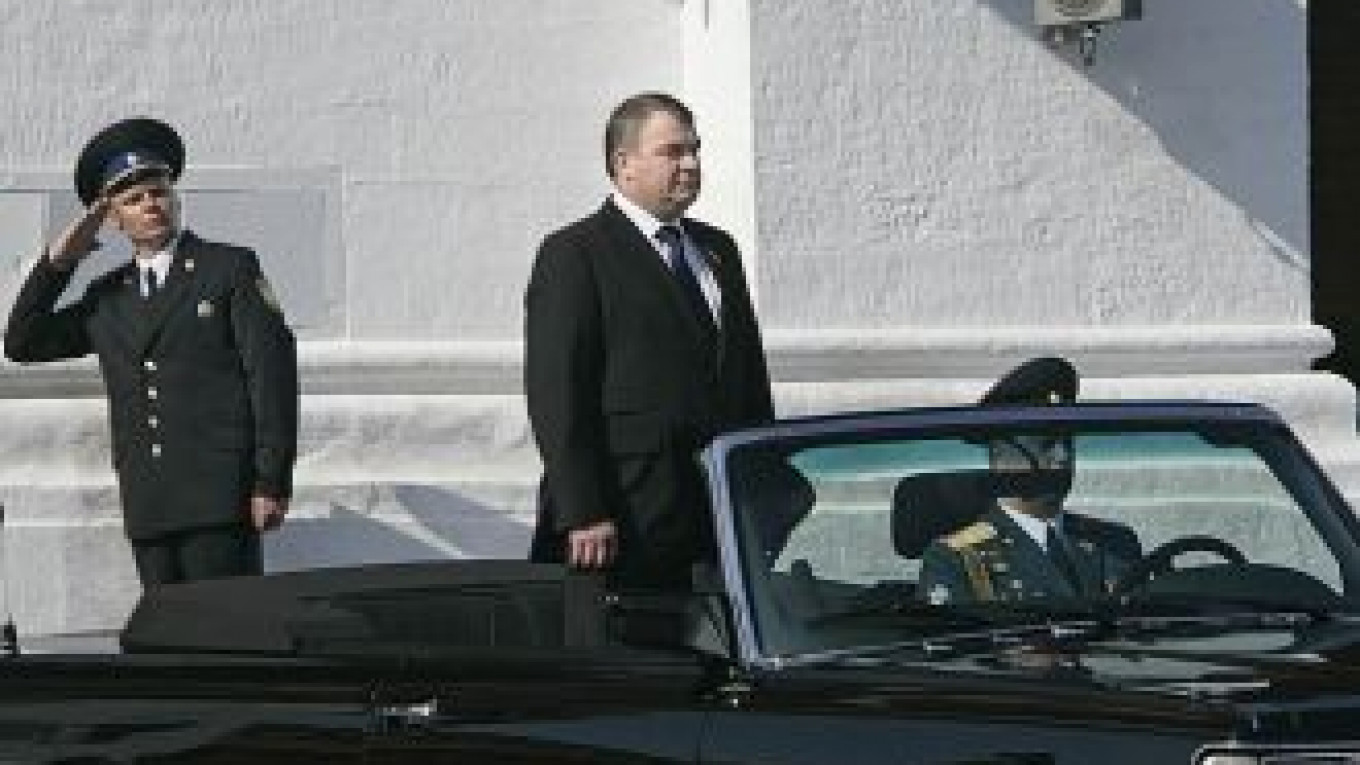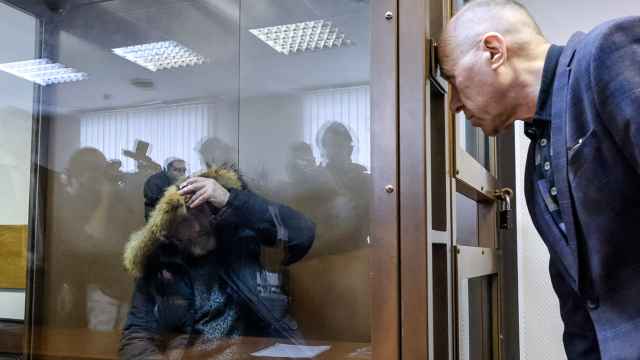Sergei Shoigu said he was surprised by his appointment to replace Anatoly Serdyukov as defense minister, but his combination of popularity among the public and loyalty to the Kremlin makes him a fitting choice to head one of the country's most important government sectors.
Shoigu, who entered government service in 1991 as emergency situations head in Boris Yeltsin's first post-Communist government and led the Emergency Situations Ministry for almost two decades, will now oversee a ministry with a 2013 budget of 2.1 trillion rubles ($66.7 billion). He will take over the defense portfolio after having worked as Moscow region governor since March.
Analysts said Shoigu's new appointment shows that the Kremlin has a limited supply of skilled officials to be given key government posts.
"They have a very short bench of professionals," said political analyst Georgy Bovt.
He was echoed by Alexei Mukhin, head of the Center for Political Information, a Kremlin-connected think tank, who said the authorities themselves faced an emergency situation in trying to pick a new defense minister.
"The president wants Shoigu to create a system in the armed forces similar to the Emergency Situations Ministry. He also will be better liked in the army, since nobody was worse than Serdyukov," Mukhin said.
Mukhin was referring to the opposition Serdyukov had faced from army generals who disliked the fact that Serdyukov didn't have a military background, having worked as a tax service head and, in Soviet times, in jobs such as head of a furniture store in St. Petersburg.
While Shoigu is a construction engineer by background, he has held the rank of army general since 1993 and has been praised for turning the Emergency Situations Ministry into a powerful paramilitary structure filled with former defense and police officials.
"He has experience running a military-like structure that cooperated with the military during emergency situations. There are a lot of similarities between the Emergency Situations Ministry and the army," said Alexander Perenzhyev, head of the Association of Defense Analysts think tank.
Shoigu will preside over a million-man army that underwent major reforms during Serdyukov's tenure and is expected to receive trillions of rubles worth of new armaments over the next decade.
Deputy Prime Minister Dmitry Rogozin, who oversees the military-industrial complex in the government, said he expects "constructive dialogue" with Shoigu, Interfax reported.
The new defense minister will likely replace a number of Serdyukov's senior appointees, including General Staff chief Nikolai Makarov and Deputy Defense Minister Dmitry Chushkin, who oversees defense policy in telecommunications technologies, Vedomosti reported Tuesday, citing unidentified Defense Ministry officials.
Perenzhyev said he hopes Shoigu will have his own vision, and that with his arrival everyone expects the "young women with lap dogs" to leave the ministry, referring to female tax officials who Serdyukov appointed to various Defense Ministry posts.
Serdyukov, who became defense minister in 2007, was responsible for carrying out major military reforms that transformed the Soviet-era military into a more mobile force. The military budget has increased dramatically in recent years, providing troops with new weapons and increasing their mobility.
Organizational reforms eliminated Soviet-era structures and reduced management overhead by nearly two times, Putin has said.
The president has indicated that the armed forces would get 400 ballistic missiles, eight underwater strategic submarines and 2,300 tanks over the next 10 years.
Perenzhyev also said that Shoigu was appointed to the post as a loyal professional who has not been involved in corruption scandals.
Under Serdyukov, the Defense Ministry's image was tarnished by corruption scandals involving the embezzlement of property and funds by Serdyukov's subordinates, including a recent scandal in the ministry-run Oboronservis supply agency.
Shoigu is expected to make his first public appearance as defense minister on Wednesday overseeing a parade to commemorate the historical march of the Soviet Army on Red Square in 1941 before traveling to the front in World War II.
Despite Shoigu's popularity — he has been ranked as one of the country's most-liked politicians — and loyalty to Putin, his appointment was not seen by analysts as a launching pad to assume a higher government post that could make him a potential successor to the president.
"He is a service man who is obedient and I don't think he is pursuing his own career. This is his strong point," said Oleg Matveichev, a professor at the Higher School of Economics and a former presidential administration official.
Matveichev said that Shoigu, who was never part of the St. Petersburg elite linked to Putin, was able to win the trust of the president through his work at the Emergency Situations Ministry.
Shoigu acted as one of Putin's official backers during this year's presidential campaign.
Related articles:
A Message from The Moscow Times:
Dear readers,
We are facing unprecedented challenges. Russia's Prosecutor General's Office has designated The Moscow Times as an "undesirable" organization, criminalizing our work and putting our staff at risk of prosecution. This follows our earlier unjust labeling as a "foreign agent."
These actions are direct attempts to silence independent journalism in Russia. The authorities claim our work "discredits the decisions of the Russian leadership." We see things differently: we strive to provide accurate, unbiased reporting on Russia.
We, the journalists of The Moscow Times, refuse to be silenced. But to continue our work, we need your help.
Your support, no matter how small, makes a world of difference. If you can, please support us monthly starting from just $2. It's quick to set up, and every contribution makes a significant impact.
By supporting The Moscow Times, you're defending open, independent journalism in the face of repression. Thank you for standing with us.
Remind me later.






